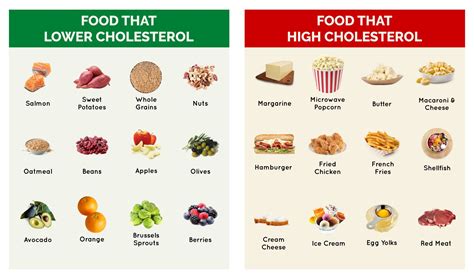
Adding blueberries to your daily breakfast could significantly lower LDL cholesterol levels, according to a recent study published in The American Journal of Clinical Nutrition. Regular consumption of this berry has been shown to reduce “bad” cholesterol, offering a simple dietary change to improve cardiovascular health.
A new study suggests that incorporating blueberries into your morning routine can significantly impact your cholesterol levels, specifically targeting the reduction of LDL cholesterol, often referred to as “bad” cholesterol. The research, published in The American Journal of Clinical Nutrition, highlights the potential benefits of this simple dietary addition for improving cardiovascular health. The study reveals that consistent blueberry consumption can lead to measurable improvements in cholesterol profiles, offering a practical and accessible way to manage heart health.
The Study’s Key Findings
The research team, led by Dr. Peter J. Curtis from the University of East Anglia, investigated the effects of daily blueberry consumption on participants’ cholesterol levels. The study involved a randomized controlled trial where participants were divided into two groups: one group consumed a daily serving of blueberries, while the other group served as a control, consuming a placebo. Over a period of several weeks, the researchers meticulously tracked the participants’ cholesterol levels and other cardiovascular health markers.
The results indicated a statistically significant reduction in LDL cholesterol levels among the group consuming blueberries compared to the control group. This reduction is crucial because high levels of LDL cholesterol are a major risk factor for heart disease. LDL cholesterol can accumulate in the arteries, forming plaque that narrows the arteries and increases the risk of heart attacks and strokes.
According to the study, the mechanism behind this beneficial effect is likely related to the high concentration of antioxidants found in blueberries, particularly anthocyanins. Anthocyanins are a type of flavonoid known for their potent antioxidant and anti-inflammatory properties. These compounds help protect the body’s cells from damage caused by free radicals, which can contribute to the oxidation of LDL cholesterol. Oxidized LDL cholesterol is even more harmful as it is more likely to accumulate in the arteries and trigger inflammation, accelerating the progression of heart disease.
Expert Commentary
Dr. Curtis emphasized the importance of these findings, stating, “The anthocyanins in blueberries play a vital role in improving cholesterol profiles.” He further explained that regular consumption of blueberries could be a simple yet effective strategy for individuals looking to manage their cholesterol levels and reduce their risk of cardiovascular disease.
Other experts in the field have also lauded the study’s findings. Dr. Suzanne Steinbaum, a cardiologist at the Mount Sinai Hospital in New York City, commented, “This study reinforces the growing body of evidence supporting the heart-health benefits of blueberries. The impact on LDL cholesterol is particularly encouraging, as this is a critical factor in preventing heart disease.”
Implications for Public Health
The findings of this study have significant implications for public health. Heart disease remains the leading cause of death worldwide, and high cholesterol is a major modifiable risk factor. By incorporating blueberries into their daily diet, individuals can take proactive steps to manage their cholesterol levels and reduce their risk of developing heart disease.
The simplicity of this dietary intervention is also noteworthy. Blueberries are readily available in most grocery stores and can be easily added to a variety of meals and snacks. Whether consumed fresh, frozen, or as part of a smoothie or yogurt parfait, blueberries offer a convenient and delicious way to support cardiovascular health.
Furthermore, this study aligns with broader dietary recommendations that emphasize the importance of consuming fruits and vegetables as part of a healthy eating pattern. A diet rich in fruits and vegetables provides essential vitamins, minerals, and antioxidants that protect against chronic diseases, including heart disease, cancer, and diabetes.
How to Incorporate Blueberries into Your Diet
There are numerous ways to incorporate blueberries into your daily diet. Here are a few ideas:
- Breakfast: Add blueberries to your morning cereal, oatmeal, or yogurt. You can also blend them into a smoothie or use them as a topping for pancakes or waffles.
- Snacks: Enjoy a handful of fresh or frozen blueberries as a healthy and satisfying snack. Pair them with nuts or seeds for added protein and healthy fats.
- Desserts: Use blueberries in baked goods such as muffins, pies, or cobblers. You can also make a simple blueberry compote to top ice cream or other desserts.
- Salads: Add blueberries to salads for a burst of flavor and antioxidants. They pair well with greens, nuts, and cheese.
Further Research and Considerations
While this study provides compelling evidence for the cholesterol-lowering effects of blueberries, further research is needed to fully understand the underlying mechanisms and to determine the optimal dosage for achieving maximum benefits. Additionally, future studies should investigate the long-term effects of blueberry consumption on cardiovascular health outcomes, such as heart attacks and strokes.
It is also important to note that blueberries are just one component of a healthy lifestyle. To effectively manage cholesterol levels and reduce the risk of heart disease, individuals should also focus on maintaining a healthy weight, engaging in regular physical activity, and avoiding smoking.
Detailed Breakdown of the Study
The study, titled “Blueberries improve biomarkers of cardiometabolic function in participants with metabolic syndrome—results from a 6-month, double-blind, randomized controlled trial,” involved 115 participants with metabolic syndrome. Metabolic syndrome is a cluster of conditions, including high blood pressure, high blood sugar, excess abdominal fat, and abnormal cholesterol levels, that increase the risk of heart disease, stroke, and type 2 diabetes.
The participants were randomly assigned to receive either a daily dose of 1 cup (150g) of blueberries or a placebo for six months. The researchers assessed various cardiometabolic risk factors at baseline and at regular intervals throughout the study, including cholesterol levels, blood pressure, glucose metabolism, and arterial stiffness.
The results showed that participants in the blueberry group experienced significant improvements in several cardiometabolic risk factors compared to the placebo group. In addition to the reduction in LDL cholesterol, the blueberry group also showed improvements in arterial stiffness, a measure of the flexibility of the arteries. Stiffer arteries are associated with an increased risk of heart disease.
The study also found that blueberry consumption improved endothelial function, which refers to the health of the cells lining the blood vessels. Healthy endothelial function is crucial for maintaining blood flow and preventing the formation of blood clots.
Anthocyanins and Their Role
The researchers attributed the beneficial effects of blueberries to their high concentration of anthocyanins. Anthocyanins are a type of flavonoid pigment that gives blueberries their vibrant blue color. These compounds have been shown to possess potent antioxidant and anti-inflammatory properties.
Antioxidants help protect the body’s cells from damage caused by free radicals, which are unstable molecules that can contribute to aging and disease. Inflammation is a complex process that plays a role in many chronic diseases, including heart disease, cancer, and Alzheimer’s disease.
Anthocyanins have been shown to exert a variety of beneficial effects on cardiovascular health. In addition to reducing LDL cholesterol and improving endothelial function, they have also been shown to lower blood pressure, reduce inflammation, and improve glucose metabolism.
Other Health Benefits of Blueberries
In addition to their cardiovascular benefits, blueberries have also been linked to a variety of other health benefits. They are a good source of vitamins, minerals, and fiber. They have been shown to improve brain function, protect against cancer, and boost the immune system.
Blueberries are particularly rich in vitamin C, vitamin K, and manganese. Vitamin C is an antioxidant that supports immune function. Vitamin K is important for blood clotting and bone health. Manganese is a mineral that plays a role in energy production and antioxidant defense.
The fiber in blueberries helps promote digestive health and can help lower cholesterol levels. Fiber also helps you feel full, which can aid in weight management.
Considerations and Limitations
While the study provides strong evidence for the benefits of blueberries, it is important to consider its limitations. The study was conducted on participants with metabolic syndrome, so the results may not be generalizable to the entire population. Additionally, the study was relatively short in duration, so the long-term effects of blueberry consumption are unknown.
It is also important to note that blueberries are not a magic bullet for heart health. To effectively manage cholesterol levels and reduce the risk of heart disease, individuals should also focus on maintaining a healthy weight, engaging in regular physical activity, and avoiding smoking.
The Importance of a Balanced Diet
Blueberries can be a valuable addition to a healthy diet, but they should not be the only focus. A balanced diet that includes a variety of fruits, vegetables, whole grains, lean protein, and healthy fats is essential for overall health and well-being.
The American Heart Association recommends consuming at least 4.5 cups of fruits and vegetables per day. This can be achieved by incorporating fruits and vegetables into every meal and snack.
Practical Recommendations
Based on the available evidence, incorporating a daily serving of blueberries into your diet can be a simple and effective way to improve your cholesterol levels and reduce your risk of heart disease. Here are some practical recommendations:
- Aim to consume at least 1 cup (150g) of blueberries per day.
- Choose fresh or frozen blueberries, depending on your preference and availability.
- Add blueberries to your morning cereal, oatmeal, or yogurt.
- Blend blueberries into a smoothie.
- Use blueberries as a topping for pancakes or waffles.
- Enjoy a handful of blueberries as a healthy snack.
- Add blueberries to salads or baked goods.
Conclusion
The study published in The American Journal of Clinical Nutrition provides compelling evidence that incorporating blueberries into your daily diet can significantly lower LDL cholesterol levels and improve other cardiometabolic risk factors. This simple dietary change can be a valuable tool for managing cholesterol levels and reducing the risk of heart disease. While blueberries are not a substitute for a healthy lifestyle, they can be a delicious and nutritious addition to a balanced diet. Further research is needed to fully understand the long-term effects of blueberry consumption, but the available evidence suggests that these little blue berries offer a powerful boost to heart health.
Frequently Asked Questions (FAQs)
1. How many blueberries do I need to eat daily to see a cholesterol-lowering effect?
The study used 1 cup (150g) of blueberries daily. Consuming this amount regularly can potentially lead to a reduction in LDL cholesterol levels.
2. Are frozen blueberries as effective as fresh blueberries for lowering cholesterol?
Frozen blueberries retain most of the nutritional value of fresh blueberries, including the anthocyanins responsible for the cholesterol-lowering effects. Therefore, frozen blueberries can be a convenient and equally effective alternative to fresh blueberries.
3. Besides lowering cholesterol, what other health benefits do blueberries offer?
Blueberries are rich in antioxidants, vitamins, and fiber. They have been linked to improved brain function, a boosted immune system, and potential cancer protection. They also contain vitamin C, vitamin K, and manganese.
4. Can I eat blueberries if I am taking cholesterol-lowering medication (statins)?
While blueberries are generally safe to consume, it is always best to consult with your healthcare provider or a registered dietitian before making significant dietary changes, especially if you are taking medication. They can provide personalized advice based on your individual health needs and medical history.
5. How long does it take to see a noticeable reduction in cholesterol levels after eating blueberries regularly?
The study lasted for six months, and significant improvements in cholesterol levels were observed within that timeframe. However, individual results may vary. It’s important to incorporate blueberries as part of a consistent, healthy lifestyle for optimal and sustained benefits.
Elaborated Explanation of LDL Cholesterol and Its Impact
Low-density lipoprotein (LDL) cholesterol, commonly referred to as “bad” cholesterol, is a type of fat-like substance that circulates in the blood. It’s essential to understand its role and potential impact on health, especially cardiovascular well-being.
LDL cholesterol is produced by the liver and transports cholesterol to cells throughout the body. While cholesterol is necessary for building and maintaining cell membranes, producing hormones, and synthesizing vitamin D, an excess of LDL cholesterol can lead to serious health problems.
The primary concern with high LDL cholesterol is its propensity to accumulate in the walls of arteries. Over time, this accumulation forms plaque, a hard, waxy substance that narrows the arteries, restricting blood flow. This process, known as atherosclerosis, is the underlying cause of many cardiovascular diseases, including:
- Coronary Artery Disease (CAD): Occurs when plaque builds up in the arteries that supply blood to the heart, reducing blood flow and potentially leading to chest pain (angina) or a heart attack.
- Peripheral Artery Disease (PAD): Affects the arteries that supply blood to the limbs, particularly the legs and feet. Reduced blood flow can cause pain, numbness, and even tissue damage.
- Stroke: Happens when blood flow to the brain is interrupted, either by a blood clot (ischemic stroke) or by a ruptured blood vessel (hemorrhagic stroke). Atherosclerosis can increase the risk of both types of stroke.
Furthermore, the plaque formed by LDL cholesterol can rupture, triggering the formation of blood clots. These clots can further block blood flow, leading to sudden and life-threatening events like heart attacks and strokes.
Factors Influencing LDL Cholesterol Levels
Several factors can influence LDL cholesterol levels, including:
- Diet: A diet high in saturated and trans fats can raise LDL cholesterol levels. Saturated fats are found primarily in animal products like red meat and dairy products, while trans fats are often found in processed foods.
- Weight: Being overweight or obese can increase LDL cholesterol levels.
- Physical Activity: Lack of physical activity can contribute to higher LDL cholesterol levels.
- Age: LDL cholesterol levels tend to increase with age.
- Genetics: Family history of high cholesterol can increase your risk of having high LDL cholesterol.
- Medical Conditions: Certain medical conditions, such as diabetes, hypothyroidism, and kidney disease, can affect cholesterol levels.
- Medications: Some medications, such as steroids and certain diuretics, can raise LDL cholesterol levels.
Managing LDL Cholesterol Levels
Managing LDL cholesterol levels is crucial for preventing cardiovascular disease. Strategies for lowering LDL cholesterol include:
- Dietary Changes:
- Reduce saturated and trans fat intake.
- Increase soluble fiber intake (found in foods like oats, beans, and apples).
- Consume foods rich in omega-3 fatty acids (found in fatty fish like salmon and tuna).
- Incorporate plant sterols or stanols (found in some fortified foods).
- Weight Management: Losing weight can help lower LDL cholesterol levels.
- Regular Physical Activity: Aim for at least 30 minutes of moderate-intensity exercise most days of the week.
- Medications: If lifestyle changes are not sufficient, your doctor may prescribe cholesterol-lowlowering medications, such as statins, bile acid sequestrants, or cholesterol absorption inhibitors.
The Role of Antioxidants in Cholesterol Management
Antioxidants play a crucial role in protecting LDL cholesterol from oxidation. Oxidation of LDL cholesterol is a key step in the development of atherosclerosis. Oxidized LDL is more likely to accumulate in the arteries and trigger inflammation, accelerating the progression of heart disease.
Blueberries are rich in antioxidants, particularly anthocyanins, which can help prevent LDL oxidation. By neutralizing free radicals, antioxidants protect LDL cholesterol from damage and reduce its harmful effects.
Other Dietary Sources of Anthocyanins
While blueberries are an excellent source of anthocyanins, other fruits and vegetables also contain these beneficial compounds, including:
- Blackberries
- Raspberries
- Strawberries
- Red cabbage
- Red onions
- Eggplant
Incorporating a variety of these foods into your diet can help increase your intake of anthocyanins and support cardiovascular health.
Beyond Blueberries: A Holistic Approach to Heart Health
While adding blueberries to your diet can be a beneficial step, it’s important to remember that a holistic approach is essential for maintaining heart health. This includes:
- Quitting Smoking: Smoking damages blood vessels and increases the risk of heart disease.
- Managing Blood Pressure: High blood pressure puts extra strain on the heart and blood vessels.
- Controlling Blood Sugar: High blood sugar levels can damage blood vessels and increase the risk of heart disease, especially in people with diabetes.
- Stress Management: Chronic stress can contribute to high blood pressure and other heart-related problems.
By adopting a comprehensive approach that includes a healthy diet, regular exercise, stress management, and medical monitoring, you can significantly reduce your risk of heart disease and improve your overall well-being. Blueberries can be a valuable tool in this effort, offering a delicious and nutritious way to support your heart health.
The Future of Research on Blueberries and Cardiovascular Health
Ongoing research continues to explore the potential benefits of blueberries for cardiovascular health. Future studies will likely focus on:
- Identifying specific anthocyanins responsible for the cholesterol-lowering effects: This could lead to the development of targeted interventions or supplements.
- Investigating the long-term effects of blueberry consumption on cardiovascular events: This will provide more definitive evidence of the benefits of blueberries for preventing heart attacks and strokes.
- Examining the effects of blueberries in different populations: This will help determine whether the benefits of blueberries vary based on age, gender, ethnicity, or other factors.
- Exploring the potential synergistic effects of blueberries with other heart-healthy foods and lifestyle interventions: This could lead to more comprehensive strategies for preventing and managing cardiovascular disease.
As research progresses, we will continue to gain a deeper understanding of the complex relationship between blueberries and heart health, allowing us to harness the full potential of these little blue berries for improving cardiovascular well-being.









